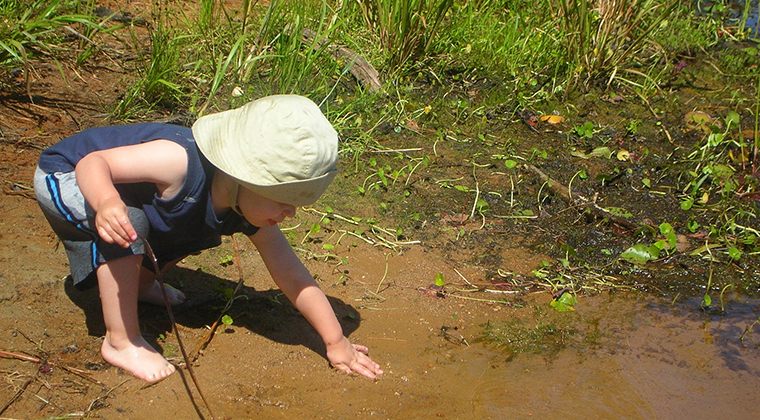Nearly 2000 years ago Hippocrates said that “All disease begins in the gut” and it turns out he was pretty much right. For when we talk about our gut health we are actually talking about the health of hundreds and thousands of microbes, bacteria, fungi, protozoa and viruses – that live on us and in us, especially in the large intestine. Collectively these microbacteria are known as the microbiome.
This fascinating ecosystem that we are a part of is involved in just about every process of the body and is vital to our health and wellbeing. These microbes help digest our food, absorb nutrients, regulate our immune system, produce vitamins and release polyphenols (a group of beneficial chemicals) from our food after they have digested them. They also influence the production of hormones (such as serotonin, of which up to 90% is made in the gut). Serotonin not only helps us feel good though also positively impacts our sleep, and acts as the gatekeeper to pain.
Finally, these good bacteria also protect us against other bacteria that produce endotoxins causing disease and inflammation. We used to think that our ‘genes’ were our destiny, but we now know through epigenetics that although our genes may load the gun it is our bacteria that decide whether to pull the trigger, and what effects our bacteria is our diet and lifestyle!

Systems that our microbiome are known to influence
Through this emerging science it is now thought that conditions such as diabetes, rheumatoid arthritis, muscular dystrophy, multiple sclerosis, bowel disorders, fibromyalgia and obesity, to name just a few, plus some cases of low mood, anxiety and depression may all have a similar root cause – an imbalance in our microbiome.
Our brain has 100 billion neurones but there are also 200-400 million neurones in the gut. Both systems are influenced by our bacteria, and send signals around the body telling it how to work, behave and feel.
Given that this ecosystem plays such a huge part in our wellbeing it is not surprising that what we think is good for us is actually good for us because it is good for all our microorganisms!
So how can we boost our gut health?
We need to do two things. We need to increase the things that the good bacteria like, and decrease all the things that cause them harm. Eating a diet rich in gut-friendly foods is probably the first step.
Lectins can potentially cause digestive issues in some individuals. Lectins are a type of protein that are found in many plant foods, such as beans, legumes, grains, and certain vegetables. They serve various functions in plants, including defence against pests. In some cases, lectins can be difficult for humans to digest and may cause gastrointestinal discomfort or other symptoms in sensitive individuals.
If you suspect that lectins are causing digestive issues for you, there are a few strategies you can consider. The first is taking supplements such as Lectin Shield which can help your body eliminate lectin proteins, while the second is ensuring that the majority of your diet is made up of low-lectin foods. A combination of these approaches can ensure that lectins cease to cause you further problems.
Think of your gut as a garden!
Firstly we need the seeds, the probiotics, which are the good bacteria themselves. These can be found in ‘live food’ such as live bio-natural yogurt, some blue cheeses, kefir, raw organic apple cider vinegar and fermented foods like sauerkraut and pickles. Do be wary though of some of the recent ‘foods’ that are marketed as being beneficial but are still laden with sugar.
Then our gut garden needs fertiliser, the prebiotics, which contain unique non-plant fibres such as inulin. These fibres are non-digestible to humans but are the food source for our micro bacteria. Good sources of such fibre include garlic, beans, onions, chicory root, asparagus, artichokes, green leafy vegetables, apples and bananas.
Happily it is thought that the good bacteria also like small amounts of good quality; dark chocolate, coffee and red wine!
By making small tweaks to our diet, such as adding in more vegetables or increasing the variety of the vegetables we eat (our microbes love variety) and adding more whole unprocessed foods like brown rice, quinoa etc we can begin to easily crowd out the refined foods such as sugar, sweeteners, processed food, white rice and pasta, all of which feed the unhealthy gut bacteria and cause poor gut health and inflammation.
As we adjust our diets the ‘bad’ bacteria are starved off, and our gut garden becomes clear of those ‘weeds’.
However if we want to ensure that our good gut bacteria can really flourish we also need to be wary of what harms them. Over sanitising ourselves with things like anti-bacterial handwashes has become a twenty first century trend. As a society we are becoming increasingly obsessed with cleanliness. Many of our household cleaning products, our shampoos, soaps and skin creams are getting harsher and hasher, killing all bacteria, good and bad alike. To find out more about microbiome friendly alternatives please see my blogs on natural home cleaning and skin products: Clean your house… naturally and More natural ways to look after your skin.
Medications such as the pill can also cause an imbalance and antibiotics, although sometimes necessary, are like napalm to our bacterial village. After any course of antibiotics it is a good idea to take some clinically proven probiotic supplements to help re-populate the gut. Nor is it really any great surprise that too much alcohol and stress, which like sugar are acidic, support the growth of the ‘bad’ bacteria rather than the good ones.
Our micro-organisms also have a circadian rhythm so need to rest, which is one of the reasons why it is thought that fasting overnight for at least 12 hours and having proper gaps of not eating between meals can be so beneficial. Research has shown that they also like us to take moderate exercise. So even if you don’t feel like getting a good night’s sleep and regularly exercising you can at least know that your micro-bacteria do, and that they will be thanking you, and supporting you to feel the best you can.
Finally good bacteria are also found in the fresh air we breathe, and in the soil. So let’s open our windows, get outside and let’s get grubby. Let’s ‘eat clean’ and ‘get dirty’.
Should you want to kick start this process of improving your microbiome then Synergy’s Purify kit, a 21 day programme, has been specifically designed to help cleanse and detoxify the body whilst rebalancing the microbiome. The programme has caused much interest in the medical world too, and following clinical trials some of the products are being patented. The programme is also soon to be featured on a Channel 4 TV Documentary “The Truth About Your Gut” which is looking at 5 ‘Solutions’ to Gut Health.
Please click here for more information.
Words: Helen Prosper
Helen is an accredited:
- Integrative Nutritional Health Coach
- Systemic counsellor
- NLP practitioner
- Massage therapist and instructor
- Therapeutic play specialist
- Reiki master
- Health and Wellbeing Cognitive Behavioural Coach
- Human Givens Trainee HG Dip.P trainee
If you would like to find out more about the modalities she offers please visit https://livewellandprosper.uk/about/







